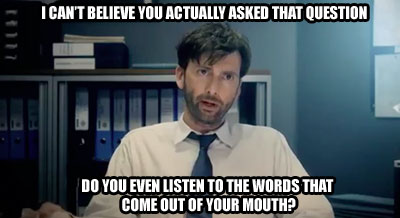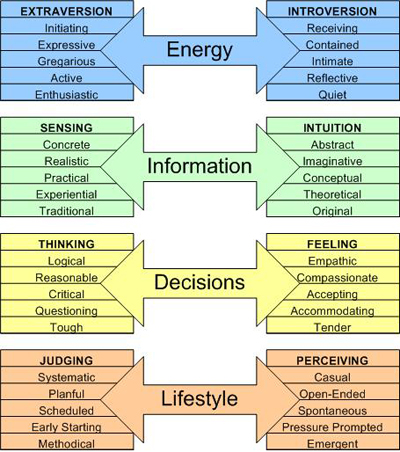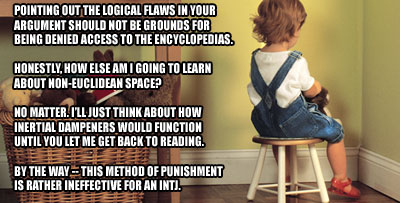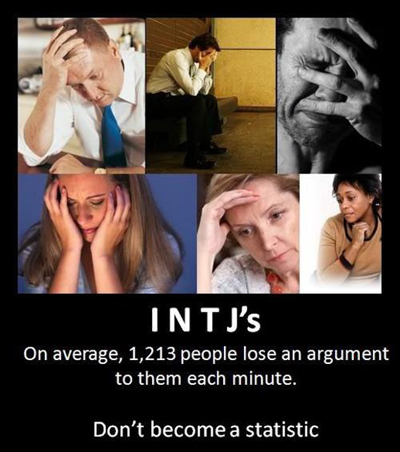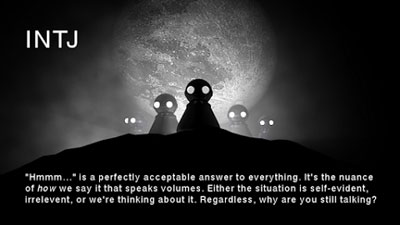Gay Marriage and LGBT rights have been a big thing in the news over here in the States for the past few months. I mentioned some of my thoughts in L’affaire Eich a while back and most people who know me have a general idea of what my thoughts are but I do still manage to surprise them by one thing (though, really, it shouldn’t be so surprising — it’s just my adherence to it even when it’s not to my advantage that throws people).
In my mind, there is no sentence more important in all of history than this one:
Congress shall make no law respecting an establishment of religion, or prohibiting the free exercise thereof; or abridging the freedom of speech, or of the press; or the right of the people peaceably to assemble, and to petition the Government for a redress of grievances.
Emphasis mine.
That right there, folks, is the most important sentence in all of history. It’s the most amazing sentence ever written. It’s a sentence that, in one fell swoop, severely limits the power of a new-born government and places power directly in the hands of the people. It’s the sentence that makes “consent of the governed” actually work. Yes, yes, the Second Amendment is very important and I’ll always defend it. But without the First Amendment, the Second would be pointless because there’d be nothing to protect.
The First Amendment protects a lot of things: freedom to assemble, freedom of association, freedom of religion, freedom from being religious, freedom to speak your mind, freedom to argue and debate, freedom to protest, freedom to lobby the government, freedom to advertise, freedom to advocate for the overthrow of the government.
Notice I said “protects” and not “promises” or “grants.” All rights in the Bill of Rights are negative rights (something I’ll touch on in detail in a later post). No one is “given” anything — the assumption is that the people already have these rights and the government is told to keep its grubby paws off them even if they think they’re meddling “for our own good” or “for the children” or whatever the catchphrase du jour is this week.
The First Amendment also explicitly forbids Congress from granting favor or disfavor to any particular sect or religion. There’s no official religion in the United States even though some colonies were founded as charters of a specific church or movement. When it comes to religious beliefs and practices, Congress (and via the Fourteenth Amendment, the States) cannot interfere except in a very narrow range of circumstances such as parents refusing emergency medical services for their child if a third party contacted them, human sacrifice, slavery via contract, and things of that nature (granted, I’m not a lawyer so if I’m wrong, let me know). Congress cannot pass a law that would force a religious institution to support something against its fundamental beliefs — such as forcing the Amish or Quakers to speak out in support of a war, forcing the Catholic church to fund abortions, forcing an Islamic group to speak out in favor of strip bars, or forcing a Jewish synagogue to sell its members on the health benefits of bacon.[1]
The flip-side of this is that no religion or sect can force its members to vote in a certain manner, to refrain from certain beliefs or behaviors by force of law, or to support certain policies or candidates in political matters. A church can beseech. It can plead. It can remark upon. But it cannot force its members to action in the political sphere. Yes, a church can refuse to perform blessings or rites upon members who violate the church’s teachings or beliefs but it can’t call up the local sheriff and have him arrest a member for being a Democrat, Republican, Libertarian, Socialist, Anarchist, or anything like that. It can’t take a member to court for being in favor of a tax increase, gay marriage, or voting against the Reverend’s daughter on the local school board.[2]
There is a legal separation of church and state that acts to protect both and this is a Good Thing. The church can, just as any other group, try to convince its members to live a certain way or to vote a certain way but it can’t force them to do so or punish them for not doing so by force of law. The state can’t tell the church that it has to perform certain rites or that it has to favor certain political policies. The church can’t baptize Caesar and Caesar can’t rule over the church. That’s a good thing because every single time we’ve mingled the two, it’s gone badly. Just look at the corruption in the Catholic Church during the era when the Pope ruled as a temporal king and claimed political dominion over all sovereigns. Look at the corruption that led to deaths in Salem, Massachusetts when all the minister had to do was point and say “witch.” Look at the way that Catholics, Quakers, Baptists, and Jews were disenfranchised in the UK and forced to pay taxes to support the Anglican church or be jailed for refusal to go against their conscience. Look at how Protestants were disenfranchised in France and Spain. Look at how Christians and Jews are treated in the Middle East (outside of Israel) today. Look at how anyone of faith is treated in China today. Letting the government enforce religious orthodoxy is a terrible idea because not a single human alive is perfect. Letting religious orthodoxy control the government is a terrible idea because religions are run by humans who aren’t perfect. Yes, yes, when Jesus returns, He’ll set up a perfect kingdom. Jesus is a special exception to the whole “terrible human” thing. As soon as you can find someone alive who is as perfect in every way as Jesus is, let me know and that person will have my vote. Until then, I’m going to function under the “power corrupts” adage and try to keep Caesar chained and unbaptized and keep religion from ascending Caesar’s seat.
Why? Because separation of Church and State is one of the only things that makes the whole American Experiment work. Without it, we’re just another England or France. Without it, we’re not America anymore. Which is why I favor stripping all religions and sects of the power to perform legal marriages and going with a system like the current one in France. Currently, in France, if you want to get married (and have it be legal), you go to the Mayor’s office and apply for a marriage license. You have to post banns for a certain amount of time to give anyone who knows a legitimate legal reason why the marriage shouldn’t happen a chance to raise an objection. Then, you go before the Mayor who reads off the laws concerning marriage, you sign on the dotted line, and bam. You’re married. If you’re religious, you can then go to the church/temple/synagogue of your choice and have a matrimonial ceremony in line with your faith. The minister can’t make the marriage legal to the French government and the French government can’t tell the minister who they have to marry or who they are forbidden from marrying in their faith.
“Oh, but then you’re trampling on our rights!” I hear some cry. “You’re forcing us to think gay marriage is okay if you make it legal. Next people will marry their brothers and sisters and dogs and cars…” Yeah, no. Every place has laws regarding consanguinity for public health reasons. People too closely related who petition for legal marriage are refused because of the likelihood of their offspring having recessive birth defects come up and tainting the entire gene pool in a region. However, these laws don’t come with fines or jail times (otherwise there are entire communities in Appalachia who would be in trouble). The government just refuses to grant a license to them. Same thing with animals or inanimate objects — if they can’t express consent in human terms that anyone who speaks the common tongue can understand, they can’t sign the certificate. And, fun fact: it’s actually not illegal to marry your pet in some places yet no one seems to do so in those areas. It’s not that it’s permissible — just not forbidden. So, refusing to ask the government to use the power of law to enforce your religious definition of marriage will not lead to the downfall of the civic order. And, there are several religions where same sex marriage is permitted as a rite and refusal to grant legal status to those couples constitutes an infringement of their First Amendment rights — so long as ministers are allowed to perform legally sanctified marriages. Remove the ministers’ power to do so and let the local government decide and you’ve removed the danger there.
You’ve also removed the government’s ability to come into your church and tell you what to teach if you do that. Right now, a lot of conservatives in the US are all aflutter that the government is allowing lawsuits to compel people to perform services for gay marriages when gay marriage is against their beliefs. There are rumors that the government might even force ministers to bless such unions by the threat of withdrawing their power to perform marriages at all. Many conservatives fear that soon they’ll be legally compelled to support a lifestyle they find to be sinful.[3] The first step to removing the ability for the government to have the first say in your religion is to divest ministers of the power to perform legally binding marriages. Many conservatives (my mother among them) will scoff at this and have a Wall of Text from the Bible about how this tramples her rights or some other such nonsense. It doesn’t. It actually protects her church from the government. Don’t believe me?
Well, it worked in France.
France is, compared to the US at least, a pretty liberal country. Not quite so liberal as the Netherlands but still pretty liberal. Just recently, gay marriage became legal in France and gay couples can now go before the Mayor and be married legally. That’s equality in France. However, the LGBT lobby in France wanted to compel churches (particularly the Catholic church) to bless such unions by performing the Sacrament of Matrimony and by letting gay couples partake of the Eucharist (which means that the couple would be “in communion” with the church instead of violating its teachings on sexual purity by living an unrepentant homosexual life). The case didn’t get very far at all. From what I understand (and again, I welcome correction if this is wrong), the LGBT group got into the courtroom and the judge looked at them like they’d dribbled on their shirts before informing them that the French government had no power to force a religious institution to perform any rite or support any belief beyond “you can’t murder people or take their stuff” and that if the LGBT group wanted the Roman Catholic Church to perform same-sex Matrimonial Rites, they needed to take it up with the Church because the government didn’t have the authority and didn’t want the authority to tell any religion what it had to do or teach. The case was dismissed and though I’ve heard rumblings of it going before the EU High Court, I have a feeling that even as batcrap-crazy as they can be, the EU court will rule against it on the same grounds.
Separation of church and state means just that: the two are separate and neither can compel, by force, the other to do a damned thing it doesn’t want to do. Even if it’s “for equality” or “for the children” or “because it’ll hurt my feelings if this doesn’t happen.” You’re not compelled to go to a specific church, believe specific things, or perform specific religious duties — you can always go find or start a religion or church that is exactly what you want it to be. Hell, L. Ron Hubbard did this and I’ve seen plenty of Protestant churches spring up over some dispute about which SEC team to support in the NFL semi-finals or because someone ate a bad piece of fish and had a revelation (I swear, it does seem to me that Protestants make things up as they go along). But, no one can force a church to do anything that church doesn’t want to do. If your feelings are hurt: go somewhere else.
“But I want to be Catholic/Orthodox/part of the Southern Baptist group/Muslim/Orthodox Jewish/whatever and they say I’m violating their beliefs by being gay.” Guess what? You are. Part of belonging to a religious faith means living by its teachings even when it’s not easy or convenient. I’m Eastern Orthodox. That means that if I want to keep calling myself Orthodox, I have to get up on Sundays (even when I just want to laze about in bed) and go to Liturgy. I have to refrain from having wild orgies. I can’t visit a psychic. I can’t sit around and say that God doesn’t exist. I even sometimes have to fast and spend time praying. I can’t say that the Patriarch of Antioch and All the East is stupid (well, I can, but it’s not really a good policy). I can’t demand to go up to the altar because I’m a woman and that’s a man’s place. I can’t demand to be made a priest (though I could become a monk if I wanted). I can’t have a boyfriend move in and sleep with me — I have to get married to him first.[4] Those are some of the rules of being Orthodox and I knew them when I converted. If I find them that onerous, I’m free to leave and find another faith. I’m not free to demand that an institution that’s been around for 2000+ years change its views just for me. If the place you go to worship says that you’re violating their beliefs, then you can either suck it up and try to live according to their teachings or you can leave and find some other place. If someone refuses to perform a non-vital[5] service for you because of their own religious beliefs, then you can suck it up and find someone else. You can’t force an institution or individual to change their beliefs for you any more than they can force you to change yours for them.
That’s separation of church and state. Don’t like it when it works out against you? Then gather an army and go conquer some territory and form your own damned nation and see how it works out for you.
For now, that’s enough for this entry. There will be future entries in this vein given my fanatical adherence to the First Amendment and all its ramifications but, for now, I think I’ve probably pissed everyone off enough. 🙂
— G.K.
[1]Yes, this also touches on the birth control debate centered around the Hobby Lobby case and Obamacare. I will go into more detail on this in a future entry because this entry is long enough and needs no more meandering.
[2]A religious institution can refuse to perform sacraments for people who violate its teachings but it cannot call upon the law or the courts to enforce its teachings. It can, however, call the police if it catches someone breaking the law (such as someone breaking into a church to steal money or commit vandalism) and it can sue someone who has violated a contract with it (such as suing a contractor who was supposed to fix the roof and did not do so).
[3]And, seeing the backlash against Eich and photographers and caterers who refuse to perform services for gay marriages, conservatives actually do have some reason to fear that their lives will be made impossible if they donate to a cause against gay marriage or if they themselves refuse non-vital services to gay couples. In America, believing that someone is doing something sinful and not wanting to support that shouldn’t ever lead to a witch hunt against that person or group. The KKK should be free to believe blacks are inferior. The Catholic church should be free to believe that abortion is murder. The Baptist church should be free to believe that homosexuality is sinful. This is one area where the LGBT groups have gone too far in trying to force everyone to wholeheartedly support them and is fodder for a future entry.
[4]Having a live-in boyfriend/girlfriend for a “trial before marriage” is against the Church’s teachings. However, suppose I were sick or injured and needed someone to stay with me around the clock to help take care of me. If my boyfriend were the only one who could do that (say I couldn’t afford to hire a nurse and had no family nearby who could help me in such a manner), then he could stay in my home and sleep separately from me and the church, while not being a-okay with it, wouldn’t consider it sinful as long as we resisted the temptation to engage in hanky-panky without a wedding first. Or if my boyfriend was having work done on his house that necessitated he vacate the premises for a few days (like fumigation or major construction), again, he could crash at my place but not in my bed.
[5]Non-vital means just that — not required to live. Having a particular photographer work your wedding isn’t a matter of life and death. Having a particular caterer work your wedding isn’t a matter of life and death. Having a particular privately-owned building or hall host your wedding or reception isn’t a matter of life or death. However, an ER doctor or an EMT/paramedic cannot refuse to perform life-saving services on someone who is gay. A surgeon who finds out mid-surgery that the patient is transsexual can’t refuse to continue treatment. A Catholic doctor who is working as an OBGYN cannot refuse to perform an abortion for an ectopic pregnancy (a pregnancy where the fetus implants somewhere that is not the uterus. Such pregnancies can almost never result in a live birth and can almost always kill the mother if they are allowed to proceed by rupturing the Fallopian tube and paving the way for internal bleeding) if the woman comes to him in an urgent situation (such as when the pregnancy is about to result in a rupture of the Fallopian tube which can be fatal). A Muslim nurse cannot refuse to change a Jewish patient’s bandages. A Jewish ER doctor cannot refuse to treat a skinhead who’s been in a car wreck. When it’s a matter of life and death (and not just butthurt feelings), doctors and nurses and medical personnel can be forced to save the lives of those who do things they believe are sinful. Likewise, people in official positions like judges, police, firemen, and lawyers can be forced to protect or serve people who do things or believe things they find abhorrent (but are not illegal). That is something that all people who choose to go into those professions are taught and warned about early on. Most doctors will try to find a way to practice medicine that isn’t in conflict with their faith but, if it comes down to saving someone’s life, they can be compelled to perform the service even if they believe it is sinful or if they hate the person and everything that person stands for.
